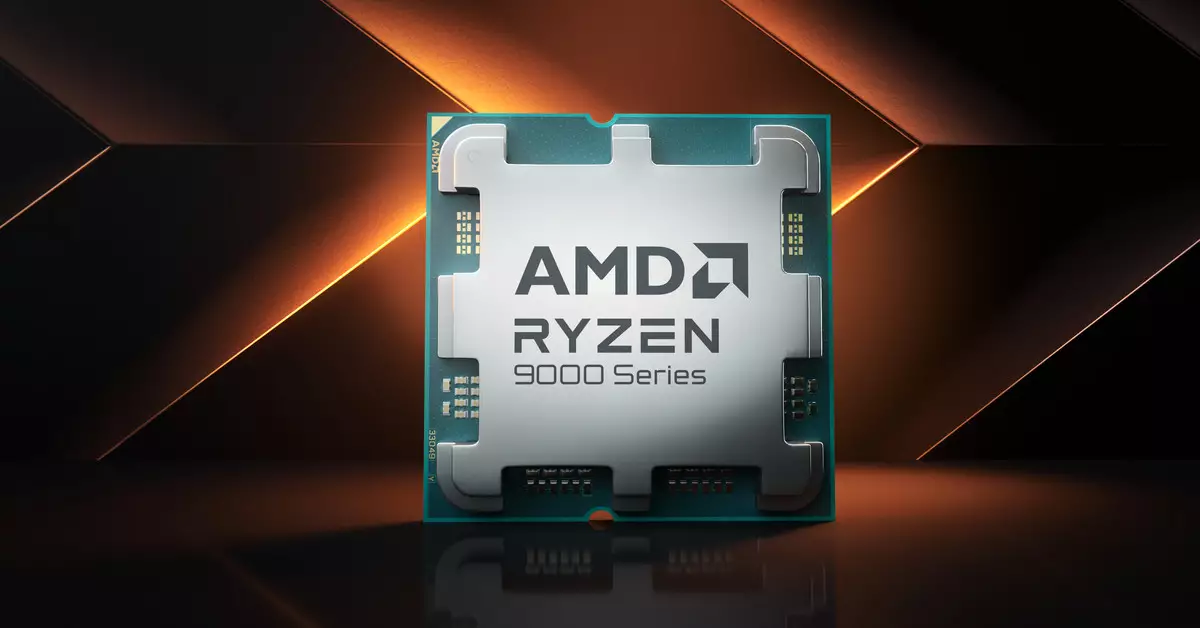In the fast-paced world of technology, announcements of new processors often generate immense excitement and speculation. Recently, AMD’s as-yet-unreleased Ryzen 9000X3D desktop processors have become a topic of intrigue following a leak from an MSI presentation. The reveal, albeit unintentional, raises questions about AMD’s strategy and the potential impact of these new chips on the gaming and computing landscape. Although the initial performance metrics advertised appear promising in some aspects, they also highlight a concerning trend regarding incremental upgrades across generations.
Recent findings suggest that while the Ryzen 9000X3D series may show notable enhancements in multicore tasks, the benefits in gaming applications may be minimal at best. For instance, benchmarks indicate that the eight-core Ryzen 9000X3D might outpace its predecessor, the Ryzen 7 7900X3D, by as much as 28% in Cinebench R23. Such results are encouraging for users who require multitasking capabilities for productivity applications. However, in demanding gaming scenarios such as Black Myth: Wukong and Shadow of the Tomb Raider, the performance differences shrink to a meager 2% increase. This trend raises skepticism about whether these new processors can truly excite consumers or convince them to upgrade from existing hardware.
The lackluster performance improvements in gaming highlight an unsettling reality for AMD, especially considering the negative reception previously received by the Ryzen 9000 lineup. The performance gains in gaming are often what consumers look for when considering new hardware investments. If the Ryzen 9000X3D series fails to deliver significant advancements in this area, it could lead to buyer apathy, where potential customers may opt to hold onto their current setups longer. In a competitive field dominated by powerful offerings from rivals like Intel, this could be detrimental for AMD’s market share.
The origin of the leak itself further complicates the narrative surrounding the Ryzen 9000X3D processors. The MSI presentation was initially focused on Intel’s new Core Ultra 200S chips, with the mention of AMD’s upcoming processors seemingly out of place. Whether this was an oversight by HardwareLuxx or a strategic leak by MSI remains unclear, but it emphasizes the need for companies to maintain rigorous confidentiality around unannounced products. As competition heats up between AMD and Intel, such leaks can influence consumer perception and, ultimately, sales.
As the tech community awaits the official announcement of the Ryzen 9000X3D processors, scrutiny regarding their performance and practicality is already mounting. While some improvements in multicore performance are promising, the modest gains observed in gaming could be a significant hurdle for AMD. The company must not only focus on enhancing processing power but also ensure these advancements translate into real-world benefits that users can appreciate. In an era where consumers are increasingly discerning about their tech purchases, the stakes have never been higher for AMD.

